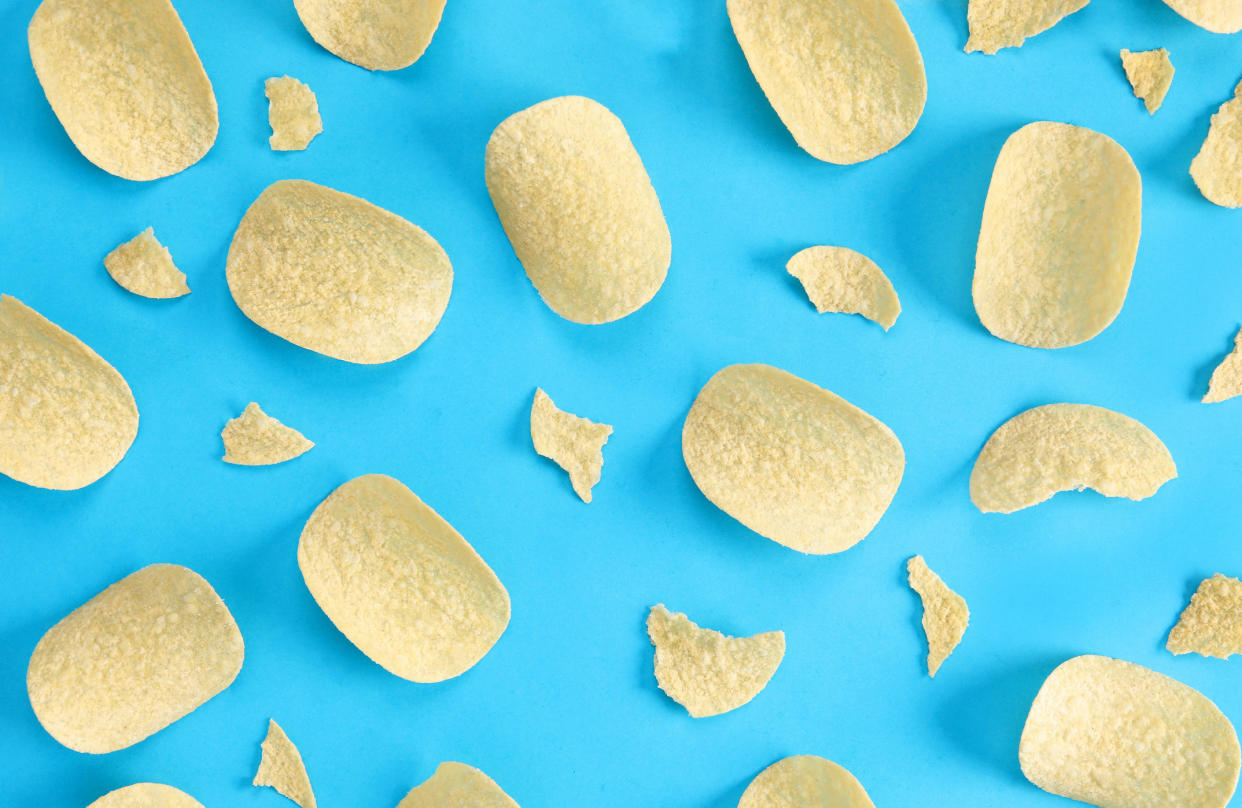Why Pringles is trying out a new tube

Pringles is trialling a new paper can in news that has been welcomed by recycling experts as a “step in the right direction”.
According to The Recycling Association the iconic Pringles tube is being re-jigged after criticism that it’s current design is almost impossible to recycle.
Made from paper, a plastic and metal lining, steel base and plastic cap, the container has been criticised for having packaging that consists of multiple materials.
The new pack should be able to go straight into household recycling bins.
Kellogg’s, which makes Pringles, is now undertaking a trial of a predominantly paper-based can at a limited number of Tesco stores in East Anglia.
This involves a can that is mostly paper with the same plastic and metal foil lining.
It is also trialling two types of lids, one made from paper and one from plastic.
Read more: Lidl cuts down on plastic waste with reusable fruit and veg bags
Exciting news! Pringles, in partnership with @Tesco, is trialing a new widely recycled* paper
can in the UK. This is part of the @KelloggsUKI's commitment to ensure 100% of its packaging
is reusable, recyclable or compostable by the end of 2025. #PopPlayEatRecycle pic.twitter.com/zVkzV6K7js— Pringles (@Pringles_UK) September 10, 2020
But experts say that though this is definitely a step forward, there are still some issues when it comes to the new can.
Simon Ellin, CEO of The Recycling Association, told Yahoo UK that though the trial with Tesco was a step in the right direction, the redesign doesn’t quite “tick all the boxes”.
The RA first highlighted the difficulty of recycling Pringles cans in 2017 and has acknowledged Kellogg’s efforts for engaging in ways they can make the product more recyclable.
The new design will be tested with two different types of lid - a cardboard one and a plastic one. Ellin says the latter should not be considered an option.
“We have always maintained that it is easier to recycle packaging based on as few materials as possible,” he explains.
“For us, the plastic lid has to be a big no because the lid needs to be made from the same material as the can in order to make it as recyclable as possible.”
He adds that the nature of Pringles often means people will eat them on-the-go, which means there is more scope for littering with a plastic lid, which could mean it ultimately ends up in our seas and oceans.
Read more: McDonald’s new paper straws can’t be recycled
According to Ellin some 90% of the new packaging is paper with around 10% being a polyal (plastic) barrier that seals the interior to protect the food against oxygen and moisture and keeps it safe.
“We hope that Kellogg will investigate alternatives to the plastic and metal lining in the can, especially as technology is evolving to allow water soluble ones that are more suited to the paper pulping process.
“With the Confederation of Paper Industries and WRAP guidelines ideally preferring the plastic content being no more than 5% of the pack weight, any efforts to remove or replace the plastic lining would be welcomed.”
“Credit where it is due, this trial shows that Kellogg is looking to do the right thing and its aim to have its packaging reusable, recyclable or compostable by the end of 2025 is a goal The Recycling Association is happy to help it achieve.”
Read more: Here’s what you can and can’t recycle
Yahoo UK has contacted Kellogg’s for comment. Pringles VP Miranda Prins has previously told trade magazine The Grocer that the brand was “eager to play our part and reduce our impact on the planet”.
She added it was “too early” to say whether this version of the tube would roll out on a permanent basis, but it would “help us understand if people like it and if it works on the supermarket shelf and at home”.
Meanwhile Ellin hopes that improvements will continuously be made to help ease confusion surrounding which product packaging can and can’t be recycled.
“The current system can be very confusing for people, but we’re moving towards a system, which will mean packaging will clearly state whether it is widely recyclable or not yet recyclable, which will help simplify things for people,” he explains.
Though Ellin says there are still products that are labelled widely recyclable which he believes could do better, this is definitely a step in the right direction.



